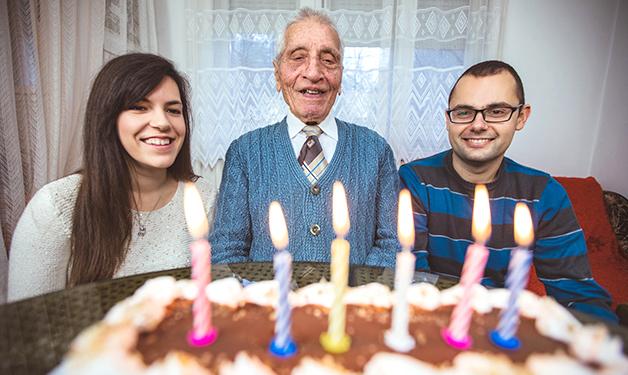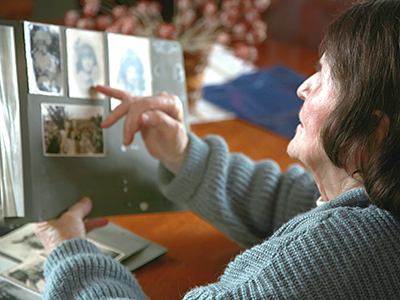
Research shows that the spaced retrieval memory training tool could help people with Alzheimer’s remember and share more experiences.
Humans often connect with each other through lived experiences, which is why not being able to remember important recent events, such as a birthday party or wedding, can be particularly hard on patients with Alzheimer’s Disease (AD) and their loved ones. The work of Vancouver Coastal Health Research Institute researcher Dr. Jeff Small examines an intervention that could support AD patients’ recall of important life events.
“The desire to talk about meaningful things that happen in our lives does not change when a family member has Alzheimer’s, and caregivers can feel a deep loss in not being able to share lived experience with that loved one,” notes Small.

“If we can help people with Alzheimer’s recall even a small number of memories from their ongoing experience, they will be better able to contribute to conversations and participate in activities with others, which could make a big difference in the quality of their relationships and lives.”
Small’s research, published in the journal Clinical Interventions in Aging in April 2020, tested the effectiveness of the spaced retrieval memory training tool on enhancing episodic recent memory recollection among AD patients.
“Episodic memories are memories of experiences that are unique to us, such as recalling what we did yesterday or what we had for breakfast.”
Generated via the hippocampus and other circuitry in the medial temporal lobe, episodic memories are particularly vulnerable to the effects of AD, which destroys neural connections that aid in memory formation and retrieval.
Short-term episodic recollection was greatly enhanced with training
Small’s study involved administering four spaced retrieval training sessions and one control session to 15 people with AD and their full-time care partners. Each 90-minute session involved a participant answering questions about an event that they participated in as part of the study, for example, a birthday party, hobby or other activity.
Immediately after the event concluded, research assistants asked the participant questions about what they remembered from this event, and then reviewed portions of a video recording of the event with the participant. If the participant could answer the questions correctly, the research assistant waited for one minute, and then prompted for recall by asking the same questions.
With each successful series of answers, the duration between questions doubled to two, four, eight and finally 16 minutes before the research assistant re-asked the questions.
If a participant responded incorrectly to the questions, the research assistant provided the correct answers and returned to the last successful time interval.
“The process of reviewing information over time activates neural networks that support memory recall.”
For the control activity questions, participants were not given the correct answers or the opportunity to watch the video when they answered incorrectly. Their recall was based entirely on their memory from the original activity itself.
Researchers found that participants were able to recall more than twice as much information spontaneously during the spaced retrieval training sessions compared to the control sessions, and four times as much information when given cues.

Although these positive results were observed during the training sessions and one week following completion of training, the participants’ recall began to diminish in subsequent maintenance sessions, which took place one and three months after the initial training session. This, notes Small, may have a lot to do with the fact that there is progressive memory loss that comes with AD.
“Any gains people with AD make in memory retention can be attenuated by the progression of the disease, so it may be necessary to have bi-weekly booster sessions to help with event recall,” notes Small.
“Most people have a smartphone with video capacity nowadays, so recording everyday events and engaging people with AD in spaced retrieval training to remember those events is a very real and accessible possibility.”
Further research is required to identify the best ways to prompt memory recall and keep those memories alive over longer periods of time, says Small.


